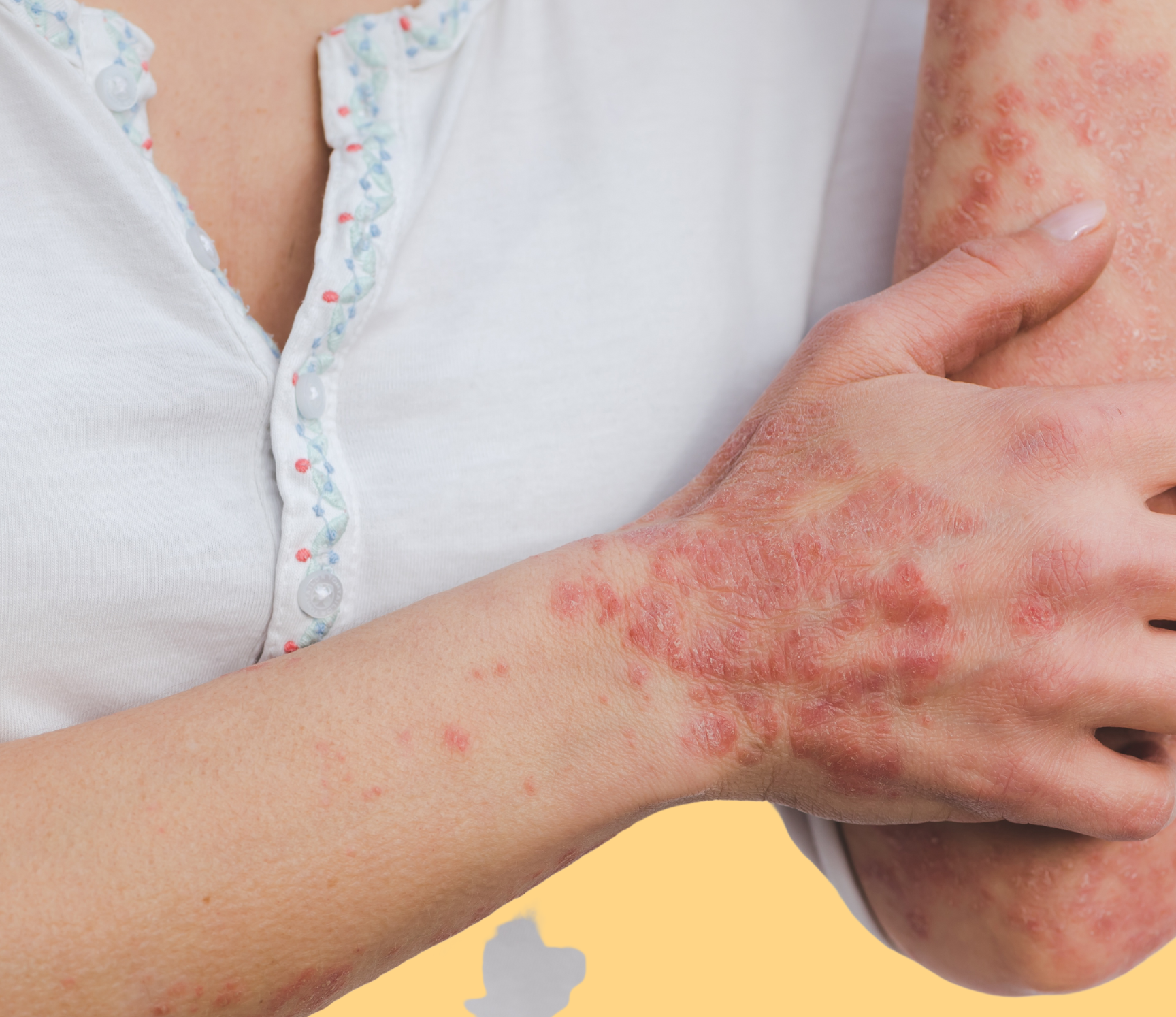SKIN TREATMENTS
Psoriasis
Psoriasis is a chronic skin condition characterized by red, scaly patches
of skin. It is a common condition that affects people of all ages, but it most often develops in people between
the ages of 15 and 35. The exact cause of psoriasis is not fully understood, but it is believed to be a
combination of genetic and environmental factors.
What is included?
- Introduction
- Causes
- Symptoms
- Care Plan

1. What is psoriasis?
Psoriasis is a chronic skin condition characterized by red, scaly patches of
skin. It is a common condition that affects people of all ages, but it most often develops in people between the
ages of 15 and 35. The exact cause of psoriasis is not fully understood, but it is believed to be a combination
of genetic and environmental factors.
2. What are the causes of psoriasis?
Common causes of psoriasis include:
- Genetics: People with a family history of psoriasis are more likely to
develop the condition.
- Immune system dysfunction: People with psoriasis have an overactive immune
response, which leads to the rapid growth of skin cells and inflammation.
- Environmental factors: Exposure to certain triggers, such as stress,
infection, injury to the skin, smoking, excessive alcohol consumption, and certain medications, can worsen
symptoms of psoriasis.
3. What are the symptoms of psoriasis?
Symptoms of psoriasis can vary from person to person and can range from mild
to severe. Some common symptoms include:
- Red, scaly patches of skin, often with well-defined borders
- Dry, cracked, and bleeding skin
- Itching, burning, or soreness in the affected area
- Stiff and swollen joints (in cases of psoriatic arthritis)
- Nail changes, such as pits or discoloration
4. What is the care plan for psoriasis?
Treatment of psoriasis typically includes a combination of self-care
measures, medication, and light therapy. A proper skin care plan is important to keep the skin moisturized and
reduce inflammation. This may include:
- Keeping the skin clean and moisturized by using mild soap and applying a
fragrance-free moisturizer right after bathing
- Avoiding triggers, such as stress, infection, injury to the skin, smoking,
excessive alcohol consumption, and certain medications
- Applying medicated creams or ointments as directed by a healthcare
provider
- Light therapy, such as UVB or PUVA, may be used to reduce inflammation and
slow the growth of skin cells
- Oral or injectable medications, such as biologics, may be used for more
severe cases
It is important to see a dermatologist if you have symptoms of psoriasis as
they can help you identify triggers, create a skin care plan, and provide appropriate treatment, including light
therapy and medications if needed.

